Gen Z Is More Pro-Abortion Than Any Other Generation—and the SCOTUS Decision Has Them Making Plans
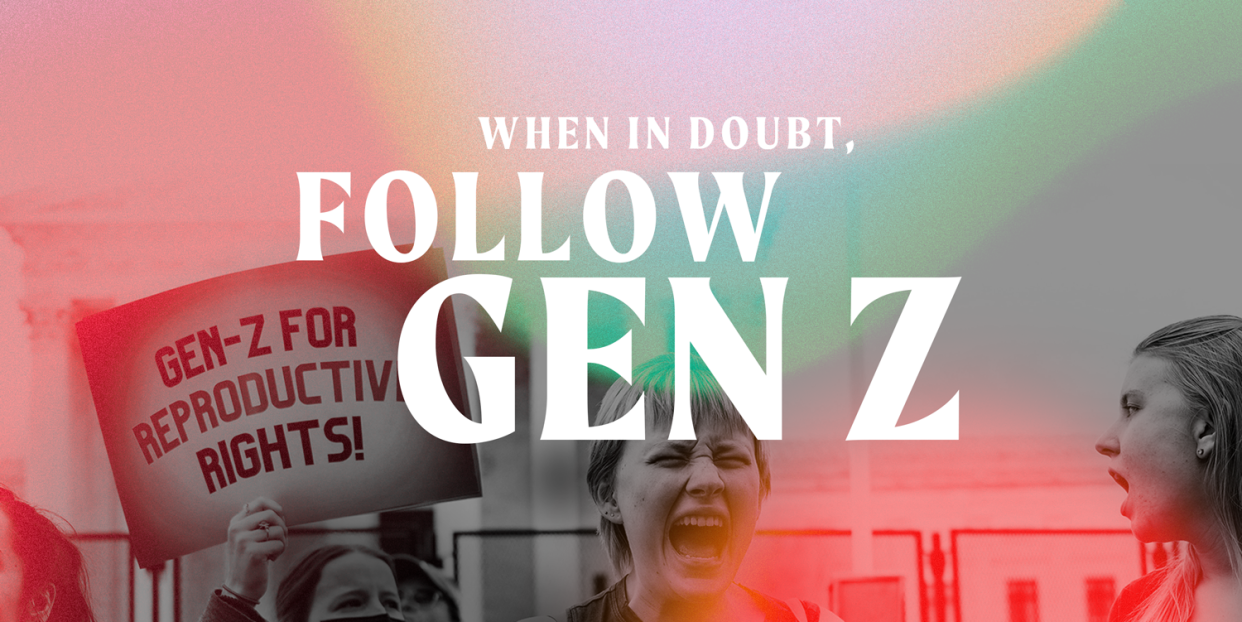
Cosmopolitan, in partnership with YouGov, has commissioned a groundbreaking survey to lay bare how the 18- to 25-year-olds in Generation Z are processing the Supreme Court decision overturning Roe v. Wade. Why this group? Simple—they’re known for fighting for what they believe in (both IRL and online), they’re part of the youngest voting generation (no pressure!), and, to put it mildly, this hugely consequential moment in our country’s history is going to reverberate for years to come.

The TL;DR: According to our survey, 2 out of 3 Gen Z members identify as pro-choice—that’s 20 percent higher than the national average.
For the vast majority of pro-choice Gen Zers who responded to our survey, the fight for reproductive freedom isn’t over, and better yet, they’re actually going to do something about it. Nine in 10 believe they have the power to make a significant impact when it comes to safe abortion access. That means organizing protests, donating to abortion funds, running for office, proactively challenging their friends and family who don’t believe in a person’s right to choose—and more.
Below, hear from Gen Z directly on how the Supreme Court decision to overturn Roe v. Wade has intensified their plans to defend their rights and secure a safer future. Don’t you worry—Gen Z is gonna fight like hell.
(The results reported below focus on Gen Zers who self-identify as pro-choice, although the survey group also included respondents who identify as pro-life and those who said they were not sure. Learn more about our methodology at the bottom of this page.)
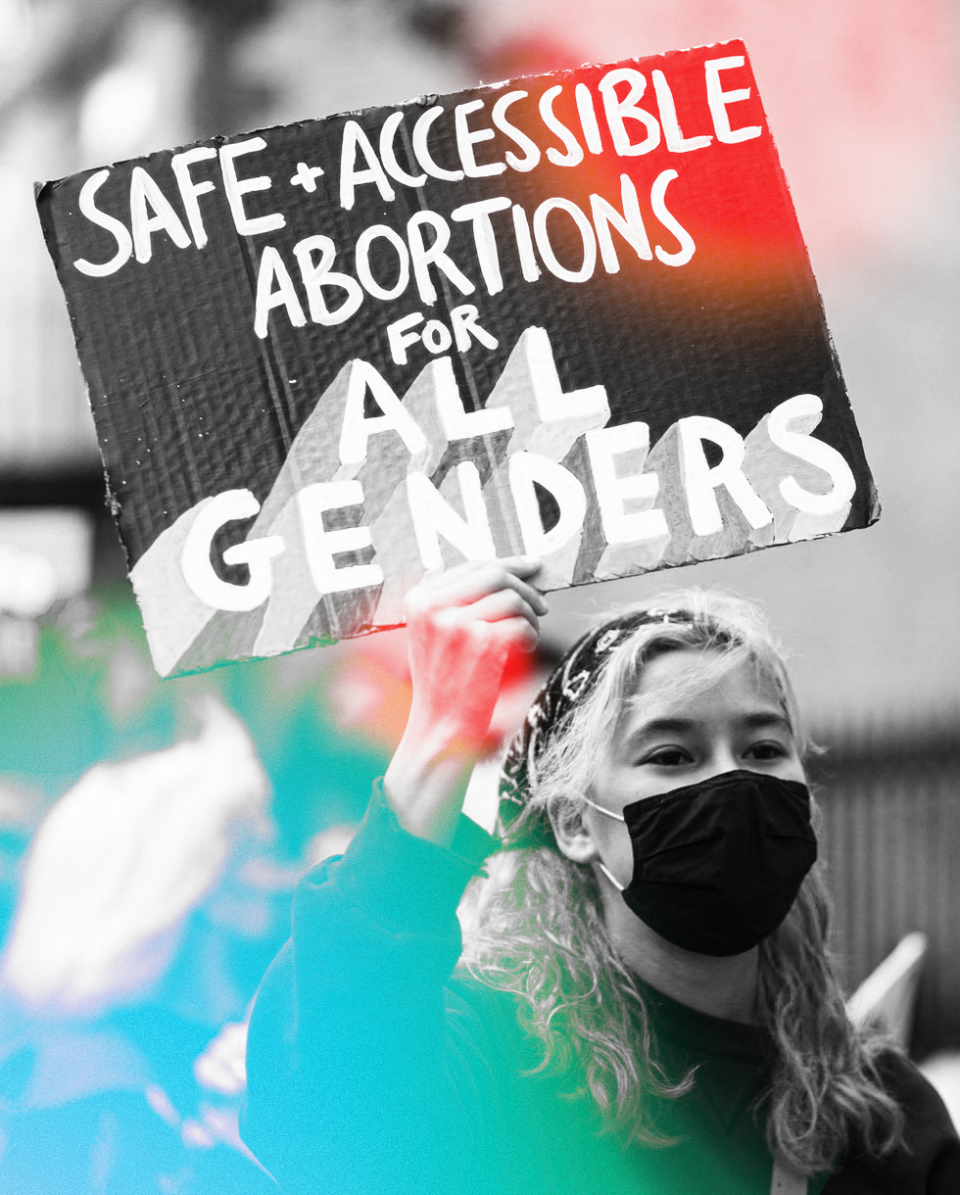

Sure, some members of Gen Z haven’t even had the chance to vote in a presidential election yet, but 25 percent say they’ll get involved with a political campaign to support candidates whose views on abortion align with their own. To understand how that stacks up, a 2018 poll found that only 7 percent of 18- to 24-year-olds said they had volunteered for a political campaign, so yeah, this is a pretty sizable increase.
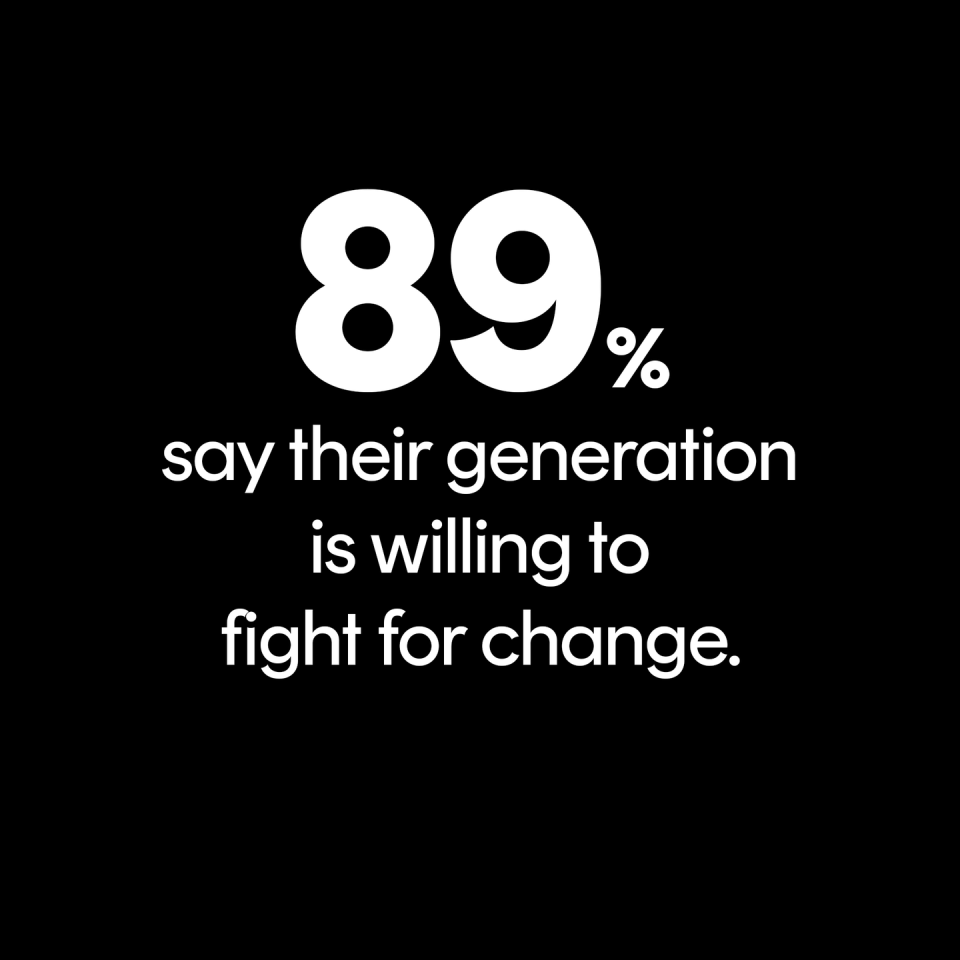
Get this: About 1 in 12 Gen Zers say they’ll go a step further and take matters into their own hands by running for elected office.
You can also expect to see many Gen Zers at the ballot box on election day: Close to three-quarters believe that voting for politicians who share their views on abortion is an effective way to create change. In fact, many Gen Zers see voting as one of the best weapons they have. Just over half say voting for representatives whose views on abortion align with their own is one of the ways they’ll fight back.
And of course they’ll be making sure that their local officials know what’s up. One survey respondent wrote that they intend to “reach out to politicians and tell them to keep their hands off our uteruses.” Another person wrote that they will “organize at the grassroots level to elect state candidates to protect abortion.”
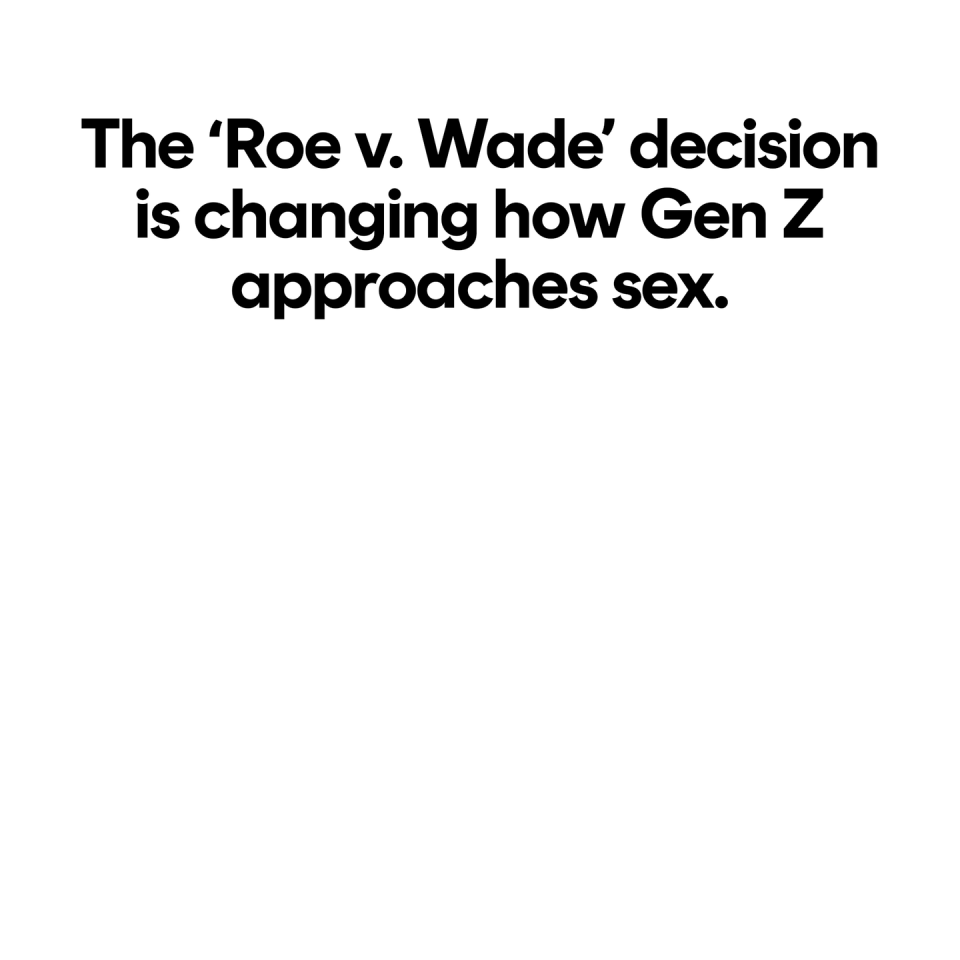
Some experts warn that the Roe decision might soon impact access to certain forms of birth control. That’s not lost on Gen Z.
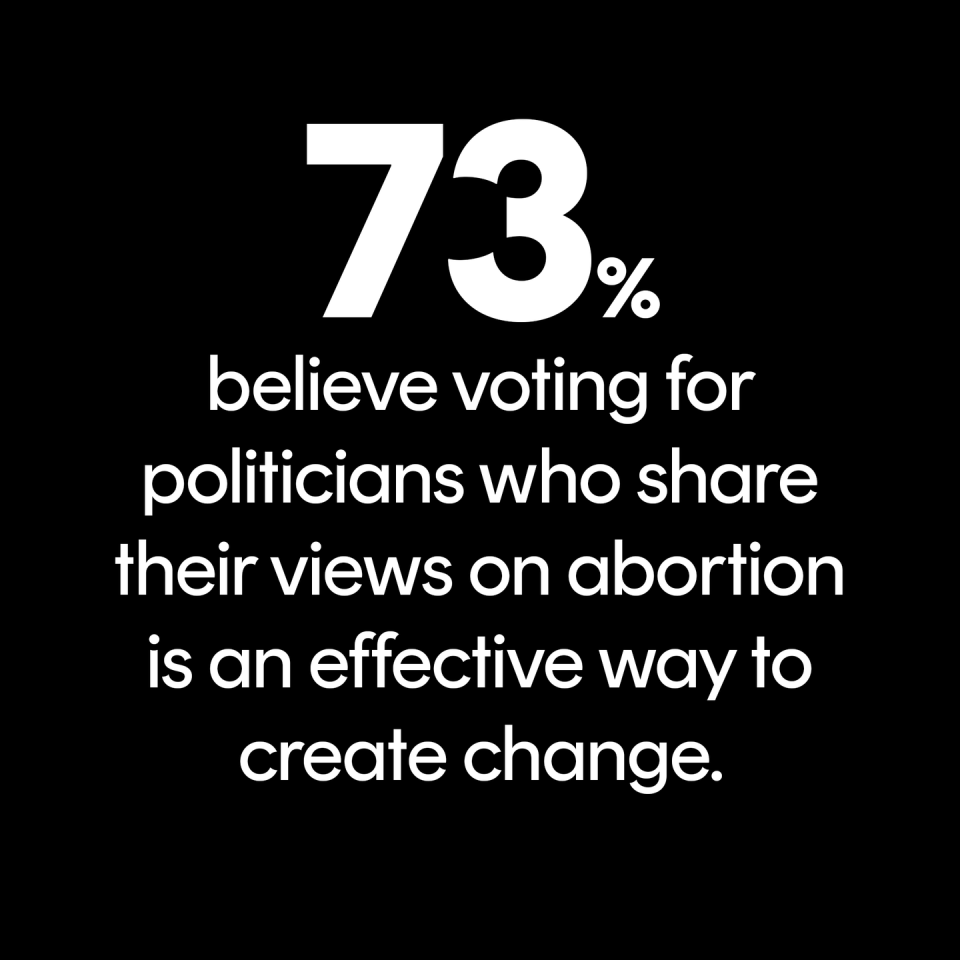
The Cosmopolitan/YouGov survey found that about 1 in 6 Gen Zers intend to get their tubes tied or have a vasectomy in response to the Roe v. Wade decision. For context, according to the CDC, only 3 percent of women in the U.S. between the ages of 20 and 29 currently use tubal ligation as their contraception (and among 15- to 19-year-olds, it’s even less common). Vasectomies are also relatively rare among men under 25—the average age at which a man gets a vasectomy is about 36 or 37, according to a 2018 study.
Sixteen percent of Gen Zers now have plans to change their birth control method or ask their partner to consider changing their method. More drastic still, 1 in 10 Gen Zers say they will abstain from penetrative sex altogether.
Several write-in responses emphasized the dangerous consequences the Supreme Court decision will have on their health and lives. The overturning of Roe represents “a potential threat to my life,” wrote one respondent, while another explained, “I’m even less safe in my body.” Another shared, “I’m being forced to live without a vital aspect of my health care.”
A fourth respondent shared an ominous fear: “I think a lot of women are going to be prosecuted and/or die from this.”


About one-third of Gen Zers are heading to protests; the same percentage said they’ll proactively discuss abortion with their friends and family whose views differ from theirs.
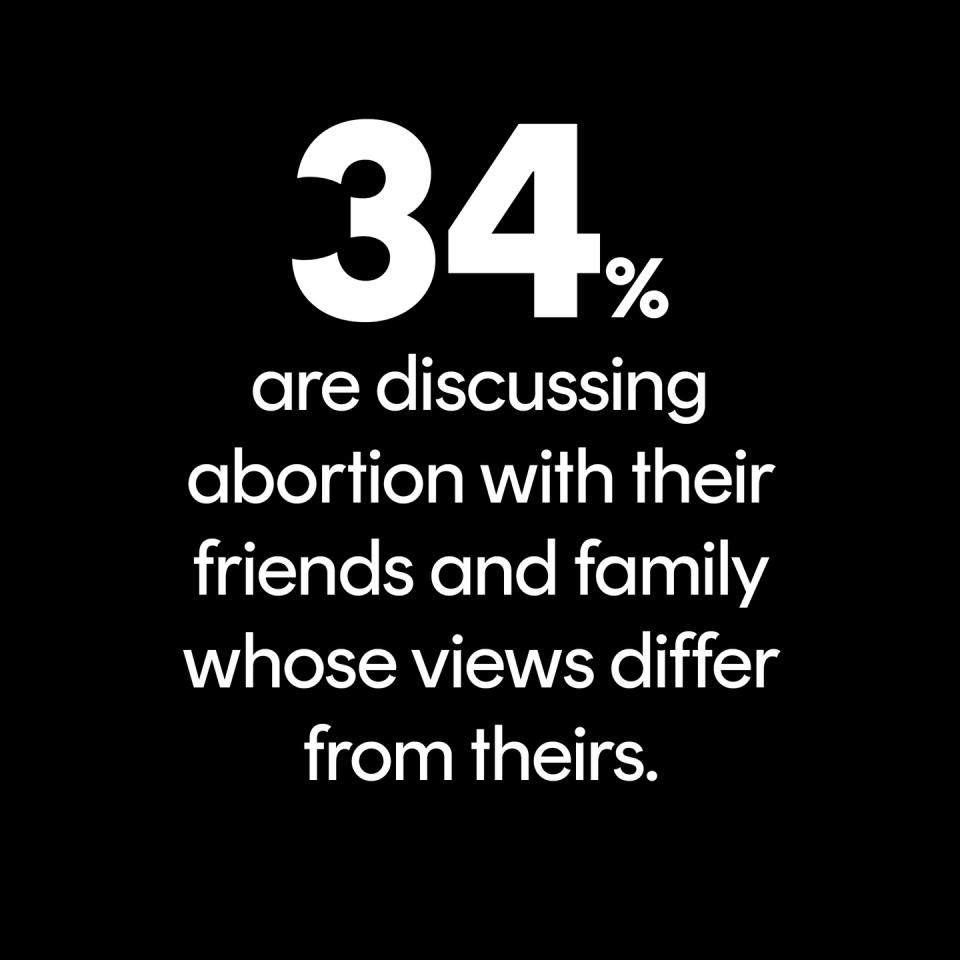
Some plan to share their personal experiences to push the fight forward. One respondent noted what the SCOTUS decision means for them as a transgender person: “It would be devastating to my mental health. As a transgender person, pregnancy is simply not a viable option. My decision to not carry children is extremely important to me and no government has the right to take that away from me. It is also an invasion of my partner’s religious freedom.”
Another person wrote, “My mother gave birth to me when she was 19. My father, our abuser, used me as leverage to keep her in a very toxic marriage for over 20 years. Though my mother did not choose to get an abortion, there are hundreds of women in her shoes every year for whom abortion is the only right option and they should be allowed to make the choice for themselves.”
Another 32 percent shared plans to donate to abortion funds. Slightly fewer (29 percent) said they will post on social media about their views on abortion, and 21 percent said they will donate to other organizations related to reproductive rights.
Close to 1 in 5 say the SCOTUS decision will motivate them to volunteer at an organization related to reproductive rights, and 15 percent plan to volunteer at an abortion clinic. If 15 percent of pro-choice Gen Zers across the country decide to volunteer at abortion clinics, that means we’d see an influx of approximately 6,337,500 new volunteers this year—that’s more than the number of people who live in the state of Maryland.

As you know, the abortion ban won’t affect all states in the same way. Some states have “trigger laws,” which means they were able to ban abortion as soon as the Roe decision came down. But abortion will remain legal in the states that have abortion access codified into their state laws, according to the Center for Reproductive Rights.
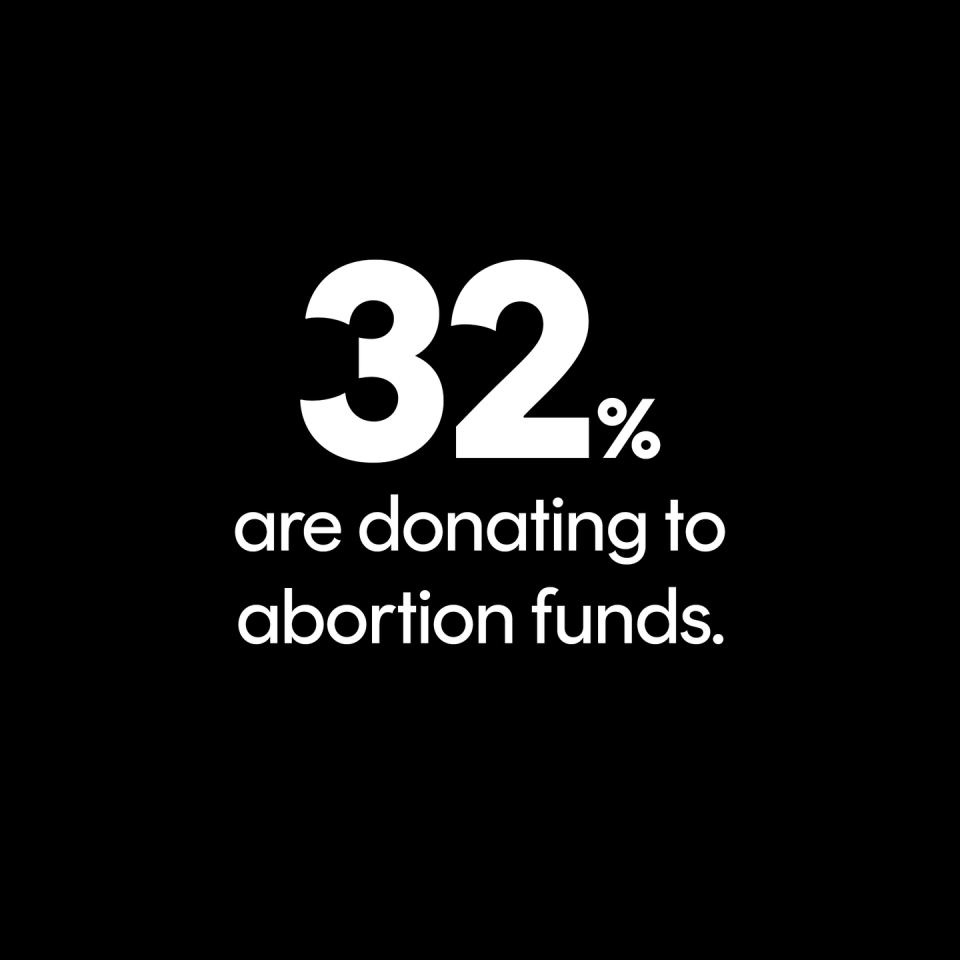
About 1 in 8 members of Gen Z say they’ll move to a different state because of the Roe v. Wade decision. Roughly 1 in 9 Gen Zers say they’ll move to a different country because of the decision. *waves to Canada*
“I would be immediately moving to a progressive state where my rights would still be protected and where my property would be a safe haven for those who need to leave their states for abortions,” wrote one survey respondent.
For those of you sitting in the back, I’ll say that last part a bit louder—Gen Z wants to provide a safe haven for those who need to travel across state lines for abortion care. If that doesn’t leave you with a little hope, I don’t know what will.
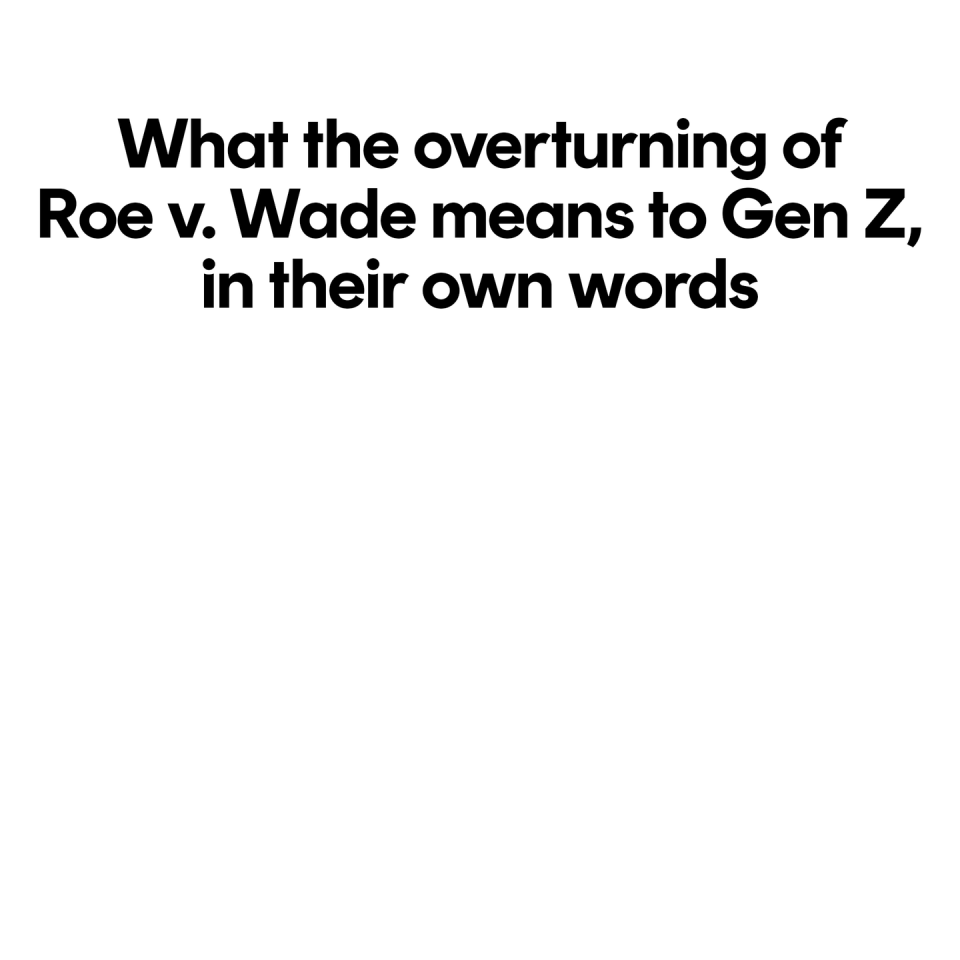
Methodology: This online survey of 265 U.S. adults ages 18 to 25 was conducted by YouGov on June 14–16, 2022. Respondents are from YouGov’s opt-in panel. Data is weighted on gender, education level, and ethnicity to be nationally representative of U.S. adults ages 18 to 25 in the United States. Links to the toplines and crosstabs are available.

You Might Also Like

